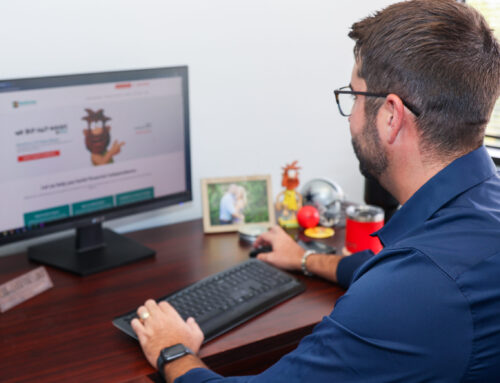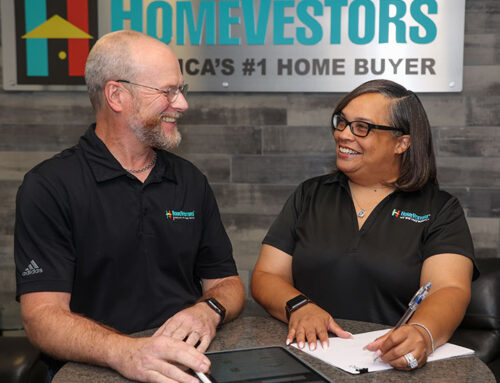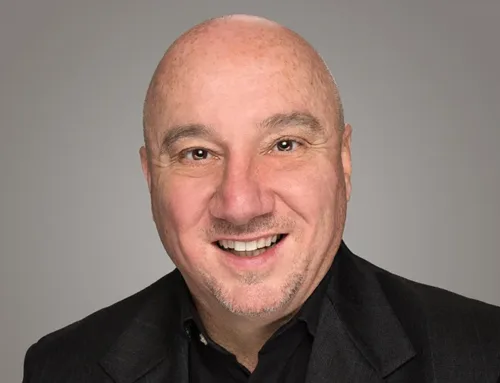
I’ve been investing in real estate for years and have seen plenty of investors come and go. Not everyone is able to make a career of it like I have, but many well-intentioned people certainly try. These days, thanks to some of the more popular real estate shows on television, even more people seem to be giving it a shot. I think that’s both good and bad. Flipping houses is a good business to get into, but it’s not nearly as easy as some of those shows make it out to be. In fact, I sometimes wonder how many novice investors end up getting themselves into deep financial trouble when they think that buying, renovating, and selling houses will make them big and fast profits like what they see on TV.
So, I decided to ask David Hicks, President and CEO of HomeVestors® of America, what he thought about the growing popularity of some of these real estate investing reality TV shows and if he had any insight for people who are inspired to start house flipping after seeing them. David is one of the main reasons I’m as successful at investing in real estate as I am. He’s passionate about the work he and the independently owned and operated HomeVestors® franchisees, like me, do, so he is always a great resource for any and all things real estate-related. When we sat down, he was eager to chat.
The Perception of Flipping Houses as a Good Business
As a professional real estate investor, I am in the business of buying, renovating, and selling houses for profit. However, neither David nor I particularly like the term “house flipping.” At HomeVestors®, the phrase is rarely used to describe what we do. So, to begin, I asked David if he would help new and would-be investors understand why that is.
The reason we don’t like the term is that it implies easy, fast money. House flipping is more than an overnight process. It’s a process of finding a house that meets certain criteria, buying the house, spending money to fix it up, then selling it or renting it. There’s a lot involved.
Also, the reality is that professional real estate investors don’t make a killing on any one house. But, they can do really well by knowing what price they can pay and how to rehab it the best and most efficient way. They do that over and over again. They buy and sell a lot of houses.
Unfortunately, he added, many of the popular house-flipping TV shows perpetuate the notion of making easy, fast money. He notes that it’s especially troubling when the shows’ producers share how much a house was bought, renovated, and sold for–without disclosing all the details. A seemingly fast turnaround on one renovated house that yields an apparently substantial profit falsely gives viewers the idea that there’s big money in buying and renovating a property with little effort or risk. As a result, if they decide to invest, they might be less likely to make good real estate investment decisions and, instead, overpay for a property and its rehab. Then, says David, “they’ve got a house that they can’t sell for what they put into it.”
But, he adds, the popularity of these shows and the effect they have on the general population’s perception of investing in real estate isn’t all bad.
In many ways, it’s very good because it has legitimized the business and a lot of people now know it is a business. That’s one of the reasons we do so well at HomeVestors. People like the shows and they like the idea of investing. But, then, they can’t find the houses and they don’t really know what to do once they do find them.
But, in my mind, that’s the value of being a HomeVestors® franchisee. I’ve received comprehensive training and mentoring from the start–and have built a solid business for myself.
Good Business Practices for Flipping Houses
If you come to HomeVestors® with an interest in opening a real estate investing franchise, you learn how to find motivated sellers and buy and renovate homes at a price that realizes realistic returns. You also learn the importance of operating with integrity and honesty, as well as how to align the needs of distressed homeowners with your own desires to do well in business. David illustrates.
If a homeowner has cost-prohibitive repair issues or a life change that results in the need to sell their home quickly, a real estate investing professional can help and it’s a win for the homeseller. The real estate investor can also turn it into a win for themselves by knowing how to rehab it in the best way and for the least money–and still do it right.
Even if you have to offer a lower price than the homeowner needs or it turns out that they may be better off selling at retail, being honest about it with them–even if it means losing the deal–can also create a win for both parties in the end. These homeowners will talk about you and about how they felt fairly or unfairly treated, whether they sold their house to you or not. As such, David says, “doing the right thing for the customer, even if it doesn’t make you the most money, is always a good business practice.”
Unfortunately, “house flipping” sometimes attracts the kind of people who want to make quick money no matter the cost and who don’t always do right by the customer. Some have even engaged in illegal straw man schemes that give ethical real estate investors a bad name. David points out, however, that this is not the norm.
Like other industries, most of the people who are involved in real estate investing do it right and provide a very good service. They are a great help to the community because they take the ugliest house in the neighborhood and fix it up. They use their sweat equity and expertise to create some income and turn that house into a nice house that helps the whole neighborhood.
Furthermore, David emphasizes, “At HomeVestors®, we have systems and standards that we hold our franchises to–and that we offer a lot of training for–to keep franchisees away from doing things that are on the edge and will get them in trouble.” So following all laws, and operating with integrity and honesty in every aspect of the business, becomes a built-in strategy for the real estate investors who become independently owned and operated franchisees.
Not only that, every franchisee is trained on how to buy, renovate, and sell or rent smartly–over and over again–so that the work focus is less on flipping houses for easy money and more about developing a real career in professional real estate investing. It’s a point of pride, for David, that HomeVestors® franchisees set themselves apart in this way. It’s also why I was drawn to becoming a franchisee myself.
Take pride in your work as a professional real estate investor and set yourself apart from the crowd, get in touch with HomeVestors® to join the HomeVestors® franchise network today.
Each franchise office is independently owned and operated.
Contact
"*" indicates required fields





